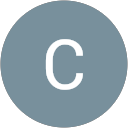BBC News 15 March, 2004
Acupuncture is used to treat pain.
Acupuncture is an effective treatment for chronic headaches and should be more widely available on the NHS, experts say.
Writing in the British Medical Journal, UK researchers said patients who were given acupuncture had fewer days of headaches than those who were not.
They also saw their GP less and were not as reliant on painkillers.
The government said doctors could decide to fund the therapy locally, if they felt patients would benefit.
Researchers analysed 401 patients from across the UK who reported several days of severe headaches each week.
They were randomly allocated to receive up to 12 acupuncture treatments over three months or to a control group offering other types of care, typically medication.
This should help to lift acupuncture out of what is seen to be alternative to mainstream medicine
Dr Mike Cummings, British Medical Acupuncture Society
All patients completed a diary of headache and medication use for four weeks at the start of the study and again at three months and 12 months.
They recorded the severity of their headaches on a six-point scale to produce an overall score.
Patients receiving acupuncture experienced 22 fewer days of headache per year, used 15% less medication, made 25% fewer visits to their GP and were absent from work through sickness 15% less than the control group.
The researchers, from centres around the UK, wrote that introducing acupuncture services could lead to significant long-term benefits for patients with chronic headaches.
They added: “Expansion of NHS acupuncture services for headache should be considered.”
The medical director of the British Medical Acupuncture Society, Dr Mike Cummings described the study as “innovative”.
NHS approval
He said: “It is very positive for us. This should help to lift acupuncture out of what is seen to be alternative to mainstream medicine.
“I think acupuncture should be more widely available on the NHS – but with a huge rider, only in areas where it has been shown to have definite benefits.
“It is not a panacea for everything.
“It should be made available in primary care to treat pain and to prevent costly referrals to hospitals.”
Ailments which respond well to acupuncture include headaches, neck, shoulder and back pain and osteoarthritis in the knee, he says.
Each week, 10% of GPs in the UK either refer patients to acupuncture or practise it themselves, and chronic headache is one of the most commonly treated conditions.
It shows a growing recognition by the health service of the benefit of complementary medicine.
A Department of Health spokeswoman said: “The government appreciates that many people find different complementary medicines, such as acupuncture, helpful in alleviating the symptoms of certain illness, especially those for which orthodox medicine does not seems to have a complete answer.
“As a result, some complementary and alternative medicine can be made available on the NHS if local NHS clinicians and commissioning organisations such as primary care trusts are convinced that it will be a clinical and cost effective use of resources.”

 August 22, 2010 in
August 22, 2010 in 










